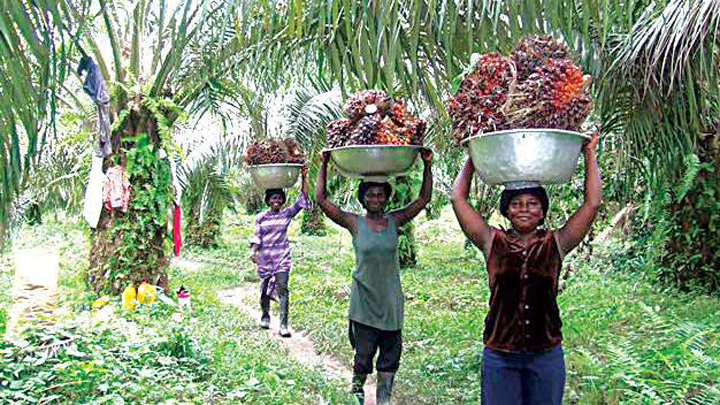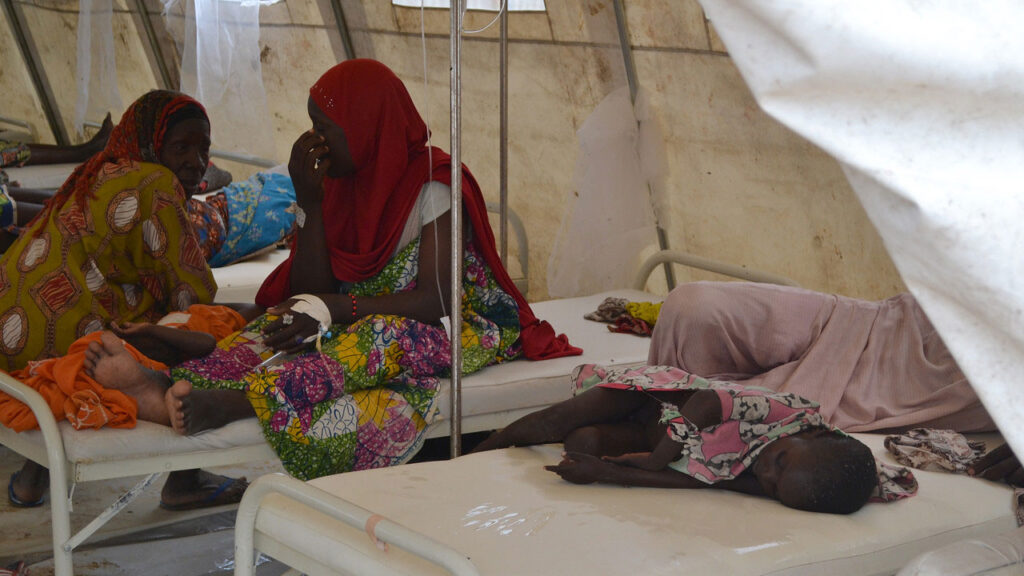
THE recent warning by prison contractors that prison inmates across the country might be thrown into hunger from December if outstanding bills of food supplied were not paid underscores the pathetic state of affairs in Nigerian prisons.
Nigerian prisons are more like dungeons. A lot has been said about the inhuman condition prisoners are subjected to in Nigeria. To add hunger and starvation would certainly compound an already degenerate and pitiable situation. The Federal Government, through the relevant ministry and agency, should rally to ensure that the country does not face the embarrassment that might result from prisoners starving, which could pose another security and health danger.
In a letter to President Muhammadu Buhari, the prison contractors, under the aegis of Nigerian Prison Service Ration and Gas, reportedly, expressed their intention to stop food and gas supply to the prisons. The contractors claimed they were indebted to the tune of N6 billion, which has drained their financial capacity to source for food and gas to supply the prisons. They appealed to the President and Minister of Internal Affairs to intervene in the matter by ensuring that the backlog of debts is cleared promptly; otherwise, they might not be able to supply food items and gas in December.
If the contractors’ disclosure that they have not been paid for their supplies since January this year is true, it is unacceptable, unless such time lag forms part of the agreement between the two parties. Their lamentation therefore that they have been forced to resort to taking bank loans, with compound interests, is pathetic. They recalled that in the past, government paid two weeks ahead of execution of their supply contract, which facilitated their operations. It is only normal for them to wonder why the system changed, and the burden of sourcing for fund to buy food and gas for the prisons became theirs.
The scenario in the prisons, no doubt, speaks volumes about mismanagement and absence of priority setting.
Nations are reckoned with by the quality of treatment meted out to prisoners, as prisons are populated by men, women, pregnant women, children and babies. Whether as convicts or persons awaiting trial, prison inmates ought not to be abandoned to their fate or denied their right to fair treatment and dignity of their persons.
Sadly, the shoddy handling of prisoners’ matter, as reflected in the poor preparation concerning their feeding, is only symptomatic of poor governance at all levels. After all, even, the general citizenry outside of prisons are not adequately cared for. The society seems to have the penchant to suffocate its own without exception.
Therefore the predicament of the prison contractors is a metaphor of the general anomie in the system. Teachers and civil servants are not paid. Contractors are owed. State governments are bemoaning their inability to pay statutory salaries and emoluments. Basic social needs – roads, electricity, schools, hospitals, etc, are in deplorable condition. Fuel marketers are hoarding supply on the ground that government has not paid their subsidy. And now prison contractors are not paid.
With the revelations, though largely unproven, making rounds about how huge public funds were siphoned into private pockets, the root of the current financial malaise is not far-fetched. Corruption and mismanagement in the polity obviously have visited the prisons too. Despite the trillions of naira government reaped from oil revenue since 1999, the country suddenly became broke and can no longer meet basic needs. Prison inmates must not be made to face starvation as a result of government failure to pay food contractors. That will amount to misgovernance.
It is bad enough that years of lamentation over the deplorable condition –over-crowding, unhygienic environment, poor sanitation, decease-prone etc – of the prisons have not provoked a serious attempt at reform. It will be unconscionable to allow shortage of food supply to compound it. However, in addressing the food supply problem, government will do well to scrutinise the contractors and their bills, so as to prevent fraudulent payment. The credibility of some of the contractors should not be taken for granted.
Beyond resolving the food threat hanging over the prisons as quickly as possible, government should make concrete moves to reform the prison. This should start with raising the quality of prisoners’ feeding. Currently, food prepared for inmates is poor, and has resulted in malnourishment of the inmates. Many inmates die of malnutrition.
Furthermore, there is need for structural change in the way contracts are awarded and food supplied. There is little indication now that supply of food items to the prisons is well monitored. Health officials should be involved in the supervision to ensure that they are of good quality.
The amount of N6 billion being claimed by the food contractors is quite huge. Efforts should be made to verify the claim and the period it covers. How many prisoners are involved and what is their geographic spread?
It is incumbent on the government to address this complaint promptly and pay the contractors what is genuinely owed them.










